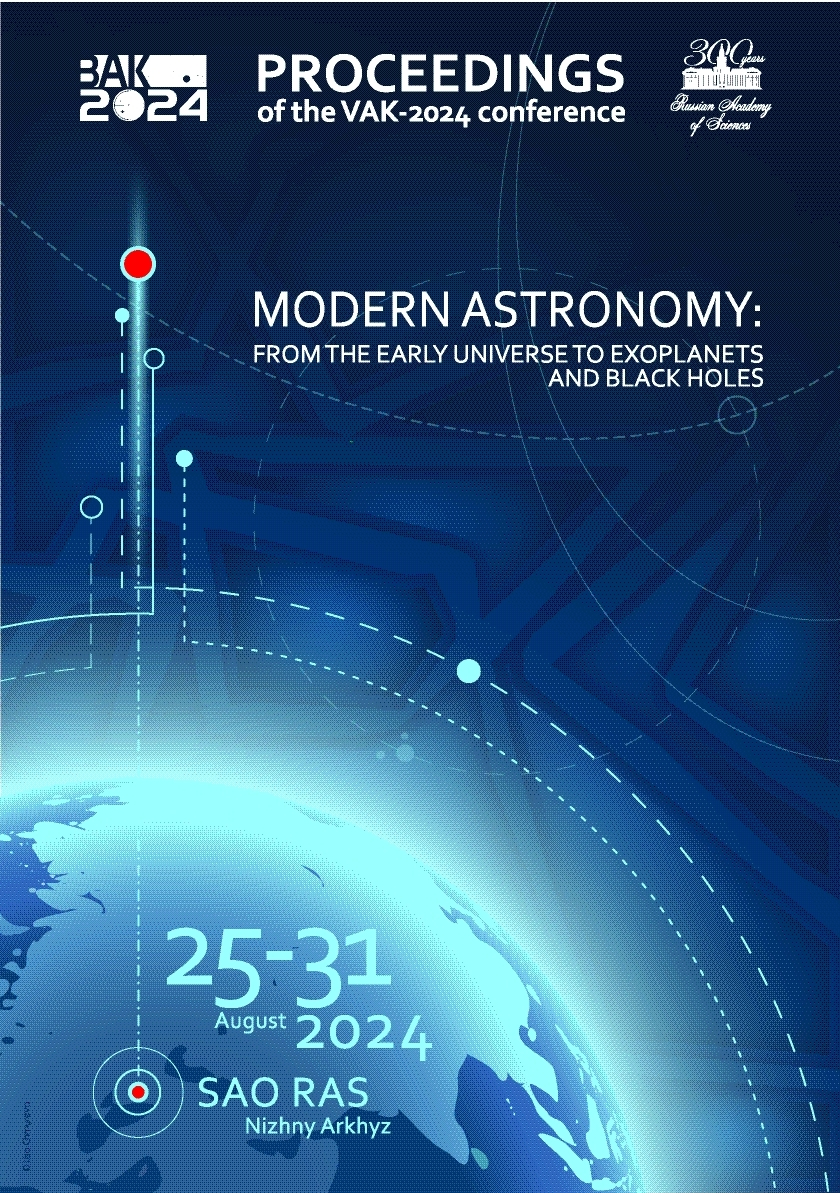УДК 53 Физика
УДК 520 Инструменты, приборы и методы астрономических наблюдений, измерений и анализа
УДК 521 Теоретическая астрономия. Небесная механика. Фундаментальная астрономия. Теория динамической и позиционной астрономии
УДК 523 Солнечная система
УДК 524 Звезды и звездные системы. Вселенная Солнце и Солнечная система
УДК 52-1 Метод изучения
УДК 52-6 Излучение и связанные с ним процессы
ГРНТИ 41.00 АСТРОНОМИЯ
ГРНТИ 29.35 Радиофизика. Физические основы электроники
ГРНТИ 29.31 Оптика
ГРНТИ 29.33 Лазерная физика
ГРНТИ 29.27 Физика плазмы
ГРНТИ 29.05 Физика элементарных частиц. Теория полей. Физика высоких энергий
ОКСО 03.06.01 Физика и астрономия
ОКСО 03.05.01 Астрономия
ОКСО 03.04.03 Радиофизика
ББК 2 ЕСТЕСТВЕННЫЕ НАУКИ
ББК 223 Физика
ТБК 614 Астрономия
ТБК 6135 Оптика
BISAC SCI004000 Astronomy
BISAC SCI005000 Physics / Astrophysics
The study of Be stars, characterized by emission lines and rotational velocities close to critical, has long been of interest to astrophysicists. These stars are distinguished by the presence of an equatorial disk, the formation mechanism of which remains unknown. To date, no magnetic field has been detected in any of these stars. The nature of the formation of Be star disks and their magnetism is still not well understood, and explaining them is one of the most urgent and complex problems in modern astrophysics. The star $\gamma$ Cassiopeiae ($\gamma$ Cas) is a prominent representative of the small group of Be stars, which have increased X-ray luminosity, corresponding to abnormally high plasma temperatures. This study presents the results of a comprehensive study of the magnetic field of $\gamma$ Cas using archival spectropolarimetric observations obtained with the Main Stellar Spectrograph (MSS) at the 6-m telescope BTA. The results of processing spectropolarimetric observations collected over several years made it possible to estimate the rms field of the star $B_{\rm rms} = 109 \pm 72$ G. The obtained data does not indicate the detection of global magnetic field. We assume that active regions associated with the star's local magnetic fields may be located on the surface of the star. Further research is needed to confirm this result.
stars: emission-line, Be, magnetic field; individual: $\gamma$ Cas
1. Bagnulo S., Szeifert T., Mathys G., et al., 2002, ASP Conference Proceedings, 274, p. 610
2. Borre C.C., Baade D., Pigulski A., et al., 2020, Astronomy & Astrophysics, 635, id. A140
3. Bradt H.V., Apparao K.M.V., Clark G.W., et al., 1977, Nature, 269, 5623, p. 21
4. Brown J.C., Cassinelli J.P., Maheswaran M., 2008, Astrophysical Journal, 688, 2, p. 1320
5. Chauville J., Zorec J., Ballereau D., et al., 2001, Astronomy & Astrophysics, 378, p. 861
6. Donati J.-F., Semel M., Carter B.D., et al., 1997, Monthly Notices of the Royal Astronomical Society, 291, 4, p. 658
7. Green G.M., 2018, Journal of Open Source Software, 3, 26, p. 695
8. Güdel M. and Nazé Y., 2009, Astronomy and Astrophysics Review, 17, 3, p. 309
9. Hubrig S., Ilyin I., Kholtygin A.F., et al., 2017, Astronomische Nachrichten, 338, 8, p. 926
10. Jernigan J.G., 1976, International Astronomical Union Circulars, 2900, p. 2
11. Kholtygin A.F., 2014, Astronomische Nachrichten, 335, 10, p.1049
12. Megier A., Strobel A., Galazutdinov G.A., et al., 2009, Astronomy & Astrophysics, 507, 2, pp.833
13. Nazé Y. and Motch C., 2018, Astronomy & Astrophysics, 619, id. A148
14. Nazé Y., Motch C., Rauw G., et al., 2020, Monthly Notices of the Royal Astronomical Society, 493, 2, p. 2511
15. Nazé Y., Rauw G., Smith M., et al., 2022, Monthly Notices of the Royal Astronomical Society, 516, 3, p. 3366
16. Nieva M.-F., 2013, Astronomy & Astrophysics, 550, id. A26
17. Pakhomov Yu., Piskunov N., Ryabchikova T., 2017, ASP Conf. Ser., 510, p. 518
18. Secchi A., 1866, Astronomische Nachrichten, 68, p. 63
19. Smith M.A., Lopes de Oliveira R., Motch C., 2016a, ASP Conf. Ser., 506, p. 299
20. Smith M.A., Lopes de Oliveira R., Motch C., 2016b, Advances in Space Research, 58, 5, p. 782
21. Smith M.A., 2019, Publications of the Astronomical Society of the Pacific, 131, 998, p. 044201







